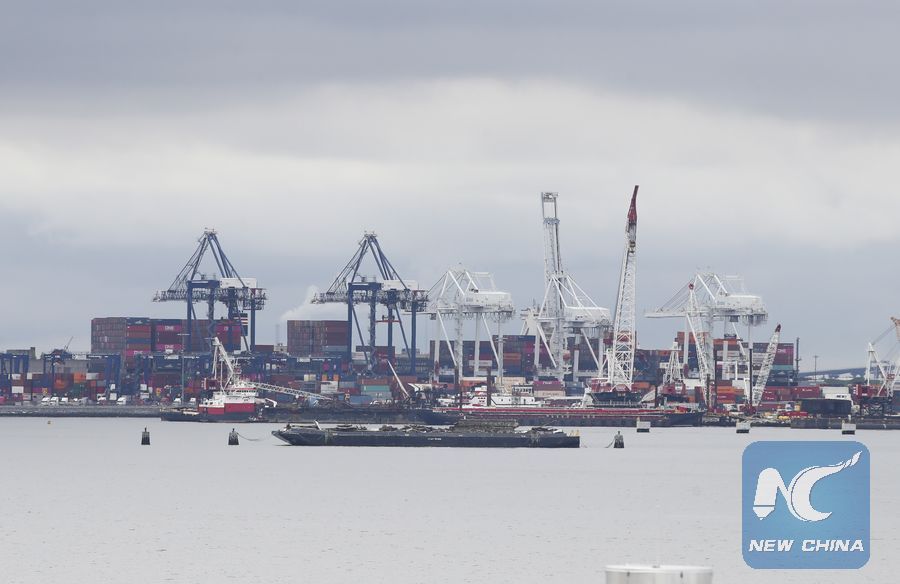
Photo taken on May 14, 2019 shows a cargo loading area of Port Jersey in New Jersey, the United States. (Xinhua/Wang Ying)
LOS ANGELES, June 6 (Xinhua) -- If the United States could abandon its arrogant view and appreciate the beauty of all cultures, the ongoing economic war that has its roots in the cultural decline of the West would be halted, a U.S. scholar told Xinhua.
Although the United States remains strong militarily and technologically, it is losing its sense of identity and its ability of mutual learning with others to re-appropriate the values that gave it cultural strength in history, said Clifford William Cobb, editor-in-chief of American Journal of Economics and Sociology.
Regarding the increasing U.S. tendency to use tariff measures against trade partners, Cobb said it is an economic war rather than a trade war, and has more roots in prejudice buried in culture than deficits in trade.
"Most original Western thought about social problems took place in the 17th and 18th centuries. The problems that arise now are reflexive and endogenous -- problems that the modern system of social order creates for itself," said Cobb.
"The West is destroying itself by failing to account for the side effects of its own inventions," he said.
Cobb pointed out that for the past 250 years, the West, including America, has had an arrogant view that its cultural system is superior and that it has nothing to learn from other cultures.
"Unless it abandons that view of itself, it is doomed," he said. "Failure is a choice. But it is not inevitable. To continue to progress, the West needs to recapture the best elements of its own past and to learn from the rest of the world."
He noted that the current economic conflict between the United States and China exemplified historic impasse, saying some leaders are so arrogant and belligerent that they choose political conflict, which closes the door for cultural exchange.
Though it seems to most people that the current trade conflict is a calamity, which leads to the decline of economic growth, fall of income and loss of jobs, Cobb saw a much bigger cost -- the loss of international cooperation on issues that cannot be solved by one nation alone, for example, greenhouse emissions reduction.
"Trade negotiations are the easiest to manage because all sides can gain, at least in principle," said Cobb. "Calling on nations to reduce greenhouse emissions is far more difficult because doing so entails less use of energy resources and thus slower economic development."
"Every nation will have to make sacrifices, and the richest nations will need to make the biggest sacrifices," he said.

